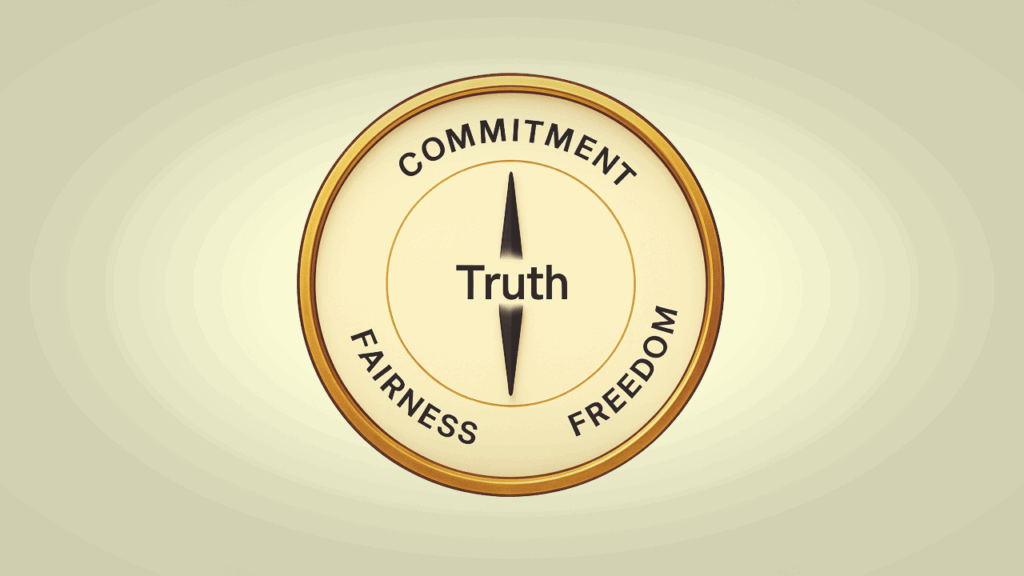
At Equal Experts, I have the benefit of working on my leadership skills with an occupational psychologist, Emily Morris . Recently, Emily gave me a powerful self-awareness tool: identifying my personal values.
I’m values-driven. I’m always delighted when people like Chris O’Dell , Dave Farley , Liz Leakey, and Thomas de Cad’oro Granier act in ways that just feel right to me. I’m puzzled when other people’s actions feel wrong, and frustrated when I don’t know why I’m puzzled. My values run so deep, and are so instinctive, that I’ve never really examined them.
Emily suggested I make the time to understand myself better. So, I trained ChatGPT on anonymised life moments – childhood and adulthood, personal and professional – where I instinctively agreed or disagreed with someone’s choices. I pushed until the reflections had emotional resonance, and surfaced the values that shape my beliefs and behaviours.
I’d recommend understanding your own personal values. It’s helped me to see where I will and won’t naturally align with people. Having a compass helps me to lead with more clarity and consistency, even when I stumble. Here are some examples and explanations.
Truth
I interviewed for a job that implied leaving person X for person Y. I tested Y by asking what do I tell X, and they said don’t worry, I talk with X all the time. But when I checked with X, they hadn’t talked with Y in a year. I cancelled all interviews.
And a school teacher warned me that my child was saying in the playground their parents always told them the truth. When I confirmed it, the teacher was horrified!
Truth is my core value. I feel like myself when there’s truth in words (honesty), actions (integrity), and expression (clarity). I’m looking for what’s real and right, not easy and empty.
Commitment
A colleague corrupted a live database, causing a substantial revenue loss. They fixed the mistake, participated in the post-incident review, and didn’t blame anyone else. I was impressed, and still cite it years later as a great example of accountability.
And I spent 290 hours playing TOTK. I was alarmed to learn my completion rate was only 62%. Sometimes, I still think about that 38%…
Commitment is about me sticking with what matters. That’s commitment to people (loyalty), outcomes (accountability), and actions (dependability). I don’t commit lightly, but when I do, I’m all in.
Freedom
I helped some colleagues from an outsourcing firm ditch their company visas for their own. I hated the idea that if they said anything critical about their employer, their careers could be at risk.
And I worked at a company where architects dictated everything to teams, from which libraries to use down to how to write code comments. It was a technology autocracy, with a corrosive effect on culture.
Freedom means having the room to think and act for myself. It’s freedom in decision making (autonomy), actions (agency), and speaking out (expression). Success doesn’t come from command and control. It comes from encouraging people to use their judgement, take ownership, and ask for help when they need it.
Fairness
I’ve tried to be an ally to under-represented people. I’ve been in so many teams, attended so many events, and worked at so many companies that were dominated by middle-aged white men. The lack of diversity had a negative impact, in so many different ways.
And I love that Equal Experts links pay to industry benchmarks, runs a profit share scheme based on tenure, and is now in employee ownership. I’ve seen other companies struggle with the transition from founders to new owners, and that isn’t the case here!
Fairness means creating conditions where everyone can succeed. I want fairness in access (opportunity), credit (recognition), and help along the way (support). I’ve learned that meritocracy doesn’t exist, and I want people to have similar opportunities to me, especially where systemic barriers have made life harder.